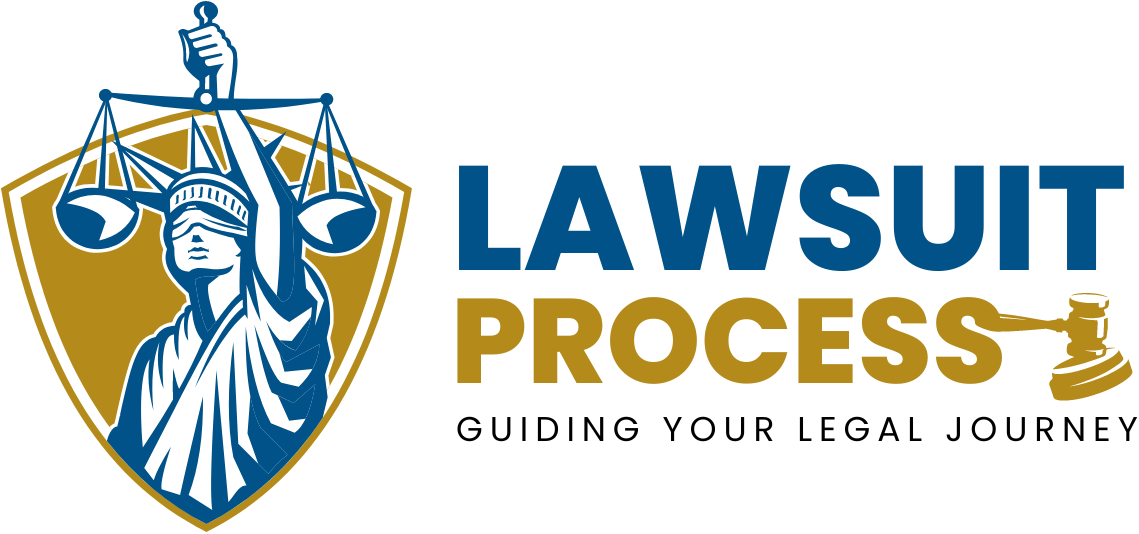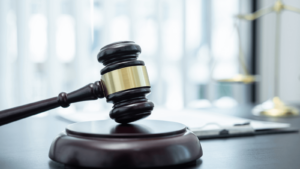Attorney-client privilege is one of the most fundamental legal protections in the U.S. legal system. It ensures that communications between a client and their attorney remain confidential and cannot be disclosed without the client’s permission. This allows individuals and businesses to freely discuss legal issues with their attorneys without fear that those discussions will later be used against them in court.
However, this privilege is not absolute. There are important exceptions to the rule, and misunderstanding its scope can lead to unintended legal consequences. This article explores the full extent of attorney-client privilege, including when it applies, when it doesn’t, and how to protect confidential legal communications.
Table of Contents
- What is Attorney-Client Privilege?
- When Does Attorney-Client Privilege Apply?
- Exceptions to Attorney-Client Privilege
- Attorney-Client Privilege vs. Confidentiality
- How to Protect Attorney-Client Privilege
- Why Attorney-Client Privilege Matters
- Final Thoughts
- 35 Common Attorney-Client Privilege FAQs
What is Attorney-Client Privilege?
Attorney-client privilege is a legal principle that prevents attorneys from being forced to disclose private conversations or communications with their clients. This privilege is designed to encourage clients to be completely honest with their lawyers, enabling attorneys to provide the best possible legal advice and defense.
Key Elements of Attorney-Client Privilege
- A Lawyer-Client Relationship Must Exist: The privilege only applies if there is a formal attorney-client relationship or if a person is actively seeking legal advice from an attorney.
- The Communication Must Be Confidential: If a third party is present or if the client shares privileged information with others, the protection may be waived.
- The Communication Must Be for Legal Advice: Not all conversations with a lawyer are privileged. The discussion must be related to obtaining legal guidance, not personal or business advice.
When Does Attorney-Client Privilege Apply?
This privilege applies in a variety of legal settings, including:
1. Private Consultations with an Attorney
When a client meets privately with a lawyer to discuss legal matters, the discussion is generally protected, even if they decide not to hire the attorney.
2. Written and Electronic Communications
Emails, text messages, and written documents exchanged between an attorney and their client are typically covered by privilege if they meet confidentiality requirements.
3. Corporate Legal Advice
Businesses can also claim attorney-client privilege, but it generally applies only to employees who are authorized to seek legal counsel on behalf of the company.
Exceptions to Attorney-Client Privilege
While this privilege is broad, there are important exceptions where courts or law enforcement can override confidentiality.
1. The Crime-Fraud Exception
Attorney-client privilege does not protect communications related to committing or planning a crime or fraud. If a client seeks legal advice to further an illegal act, the attorney may be required to disclose it.
2. Waiver of Privilege by the Client
Clients can voluntarily waive privilege if they choose to share their legal communications with third parties, such as family, friends, or the media.
3. Third-Party Presence
If a third party is present during the conversation (unless they are necessary for legal representation), privilege may be voided.
4. Death of the Client
The privilege may not always survive the death of the client, particularly if the case involves estate disputes or criminal investigations.
Attorney-Client Privilege vs. Confidentiality
Attorney-client privilege is often confused with the broader duty of confidentiality that lawyers owe to their clients. However, there are key differences:
| Attorney-Client Privilege | Duty of Confidentiality | |
|---|---|---|
| Who/what it applies to | Only confidential legal communications | All client-related information |
| Scope | Legal advice and representation | Any client information, even if not shared for legal advice |
| Exceptions | Crime-fraud, waiver, third-party presence | Preventing harm, court orders |
How to Protect Attorney-Client Privilege
To ensure that your legal communications remain protected, follow these best practices:
- Maintain Privacy: Always discuss legal matters in a secure environment, avoiding public spaces or unnecessary third-party involvement.
- Use Secure Communication Channels: Encrypt sensitive legal information when sharing it via email or through attorney-client portals.
- Be Mindful of Social Media: Refrain from posting or discussing legal matters online, as doing so may waive privilege and compromise your case.
Why Attorney-Client Privilege Matters
This privilege is essential for ensuring fairness in legal proceedings. It allows clients to:
- Speak openly without fear of legal retaliation.
- Receive accurate legal advice based on full transparency.
- Protect their legal rights and confidential information.
Final Thoughts
Understanding the attorney-client privilege is crucial for protecting your rights. To maximize its benefits:
- Seek Professional Legal Guidance: Always consult a licensed attorney for accurate legal advice tailored to your situation.
- Ensure Confidentiality: Keep legal discussions private to prevent unintended disclosures.
- Think Before Sharing: Avoid discussing legal matters with third parties, as doing so could jeopardize privileged communication.
If you’re looking for trusted legal professionals, LawsuitProcess.com provides a verified directory of experienced lawyers.
Need legal guidance? Contact an attorney today!
You can also learn more about this topic from this Wikipedia article.
35 Common Attorney-Client Privilege FAQs
1. What is attorney-client privilege?
Attorney-client privilege is a legal rule that protects confidential communications between a lawyer and their client, made for the purpose of seeking or providing legal advice.
2. When does attorney-client privilege begin?
It begins as soon as a person seeks legal advice from a licensed attorney, even during an initial consultation—even if no formal agreement is signed.
3. Is everything I tell my lawyer confidential?
Not everything. Only communications intended to be private and related to legal advice are protected. Casual conversations or statements made in public settings may not be covered.
4. Does attorney-client privilege apply to emails and texts?
Yes, if they are exchanged between the client and lawyer and relate to legal advice. However, using insecure platforms or sharing those messages with others could waive the privilege.
5. Can a lawyer break attorney-client privilege?
Only in limited situations, such as to prevent a future crime, defend themselves in a malpractice case, or if the client waives the privilege.
6. Can I waive attorney-client privilege?
Yes. As the client, you hold the privilege and can waive it by sharing protected communications with third parties or discussing them publicly.
7. Does attorney-client privilege apply if I haven’t paid the lawyer?
Yes. Payment is not required for the privilege to apply. What matters is that legal advice was sought in a confidential context.
8. Does attorney-client privilege survive after death?
Yes. In most cases, it continues after the client’s death, although there are exceptions involving estate disputes or other legal matters.
9. Can attorney-client privilege be used in criminal cases?
Absolutely. It’s especially important in criminal defense, where open communication between the accused and their lawyer is vital.
10. Is talking to a paralegal protected by privilege?
Yes, as long as the paralegal is working under the direction of your attorney. The protection extends to members of the legal team.
11. What is the crime-fraud exception?
This exception removes privilege if the client seeks the lawyer’s help to commit or cover up a crime or fraud.
12. Does privilege apply in group chats with my lawyer?
Only if all participants are directly involved in the legal matter and bound by confidentiality. Otherwise, the presence of unrelated parties may void the privilege.
13. Can attorney-client privilege be challenged in court?
Yes. A judge can review the circumstances to determine if the privilege applies or if an exception allows disclosure.
14. Is the identity of a client protected under privilege?
Generally, no. The fact that someone is a client is not privileged, but in rare cases, revealing that identity may disclose confidential information.
15. What’s the difference between confidentiality and privilege?
Privilege is a legal rule that prevents disclosure in court. Confidentiality is an ethical duty requiring lawyers not to reveal client info outside the legal system.
16. Can I talk to my lawyer in front of a friend and still have privilege?
Probably not. The presence of a third party who is not part of the legal team may destroy the expectation of confidentiality.
17. Does attorney-client privilege apply to in-house counsel?
Yes, but only when the in-house lawyer is giving legal—not business—advice.
18. Does privilege apply to law students or interns?
If they’re assisting an attorney in a professional capacity, their communications may also be protected under privilege.
19. Can I record conversations with my lawyer?
You can, but you shouldn’t share them with others. Doing so could waive the privilege.
20. Can my lawyer testify against me?
Not about protected communications. Unless an exception applies, your lawyer cannot reveal privileged information in court.
21. Does privilege apply during mediation?
Mediation communications are generally confidential but not always protected by attorney-client privilege unless a lawyer is present and advising.
22. What happens if my lawyer accidentally shares privileged information?
The court may find the privilege waived, especially if the disclosure wasn’t promptly addressed. Lawyers must act quickly to “claw back” such information.
23. Can I copy my spouse or friend on an email to my lawyer?
No. Including a third party can waive the privilege, unless that person is essential to the legal advice process (e.g., a legal guardian or interpreter).
24. Does privilege apply in immigration cases?
Yes. Clients seeking legal advice in immigration matters are covered by the same privilege protections.
25. What if I lie to my lawyer—am I still protected?
Yes, as long as you’re not seeking advice to commit fraud or a future crime. However, lying can damage your case.
26. Can I sue my lawyer and still expect privilege?
No. If you sue your lawyer for malpractice, you effectively waive privilege so the lawyer can defend themselves.
27. Does privilege apply in family law cases like divorce or custody?
Yes. Privileged communications with your attorney are protected, even in sensitive personal matters.
28. Can I share legal advice from my lawyer with my business partner?
Doing so may waive the privilege unless your partner is also a client or formally part of the attorney-client relationship.
29. Is privilege recognized in every U.S. state?
Yes, but specific rules can vary slightly by jurisdiction. Federal courts follow a similar but distinct standard.
30. What if I change lawyers—does privilege transfer?
Yes. All communications with your prior lawyer remain protected. Your new lawyer may not share them without your consent.
31. Are public defenders covered by attorney-client privilege?
Yes. Communications with a public defender are just as protected as those with a private attorney.
32. Can attorney-client privilege be used to hide documents?
Only if the documents contain or reveal privileged legal communications. Simply labeling something “privileged” isn’t enough.
33. Can I invoke attorney-client privilege in a deposition?
Yes. If a question asks about private legal advice, you or your lawyer can assert the privilege to avoid answering.
34. Does attorney-client privilege apply to former clients?
Yes. The privilege survives the end of the attorney-client relationship and usually lasts indefinitely.
35. Is it illegal to break attorney-client privilege?
For lawyers, yes. Breaching privilege without justification can lead to serious professional penalties, including disbarment.










